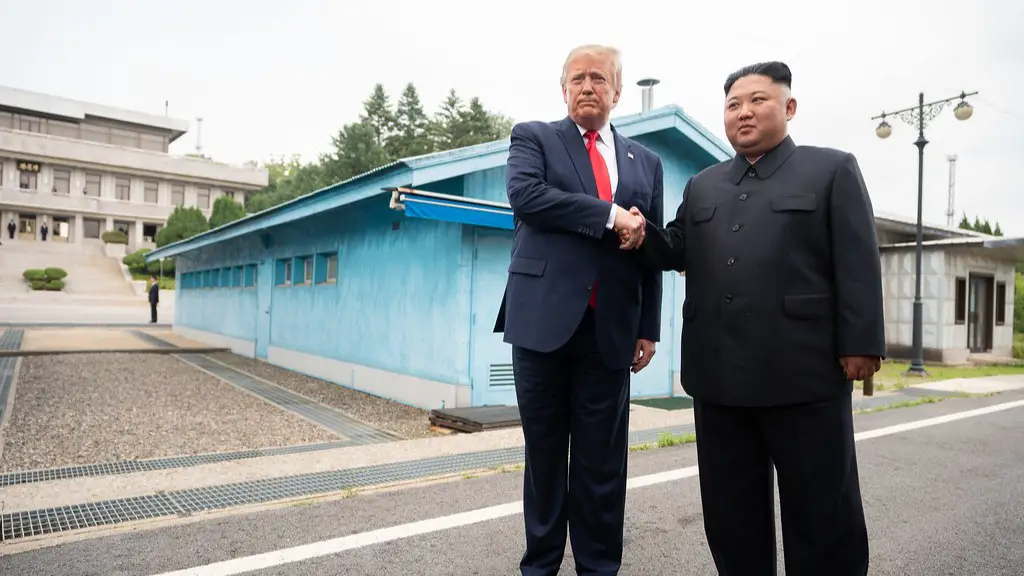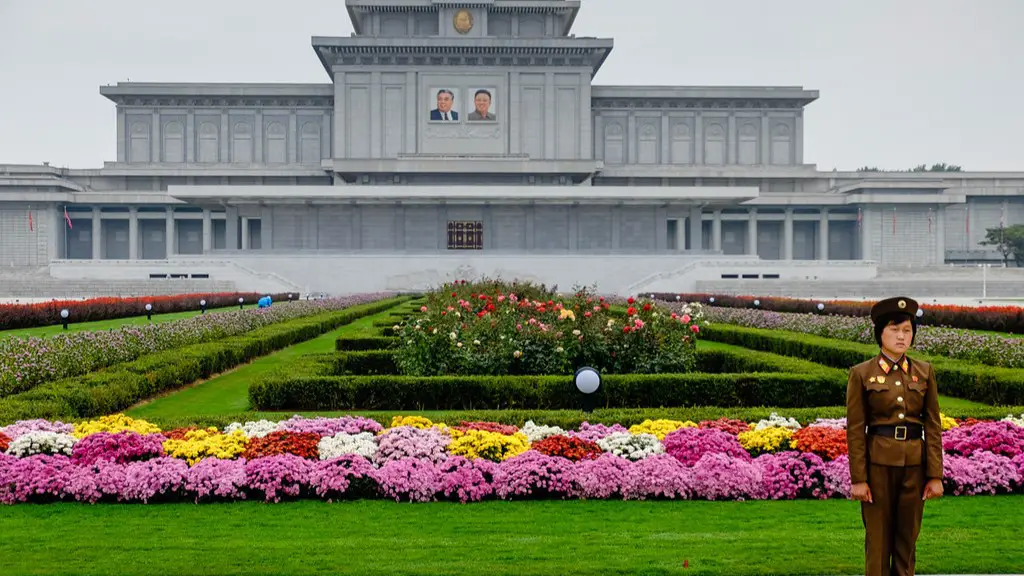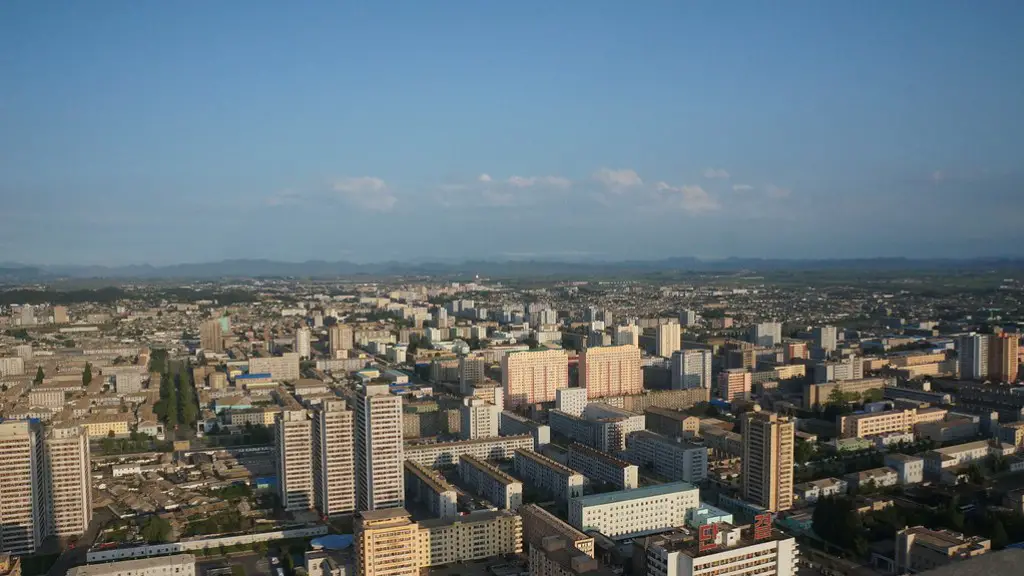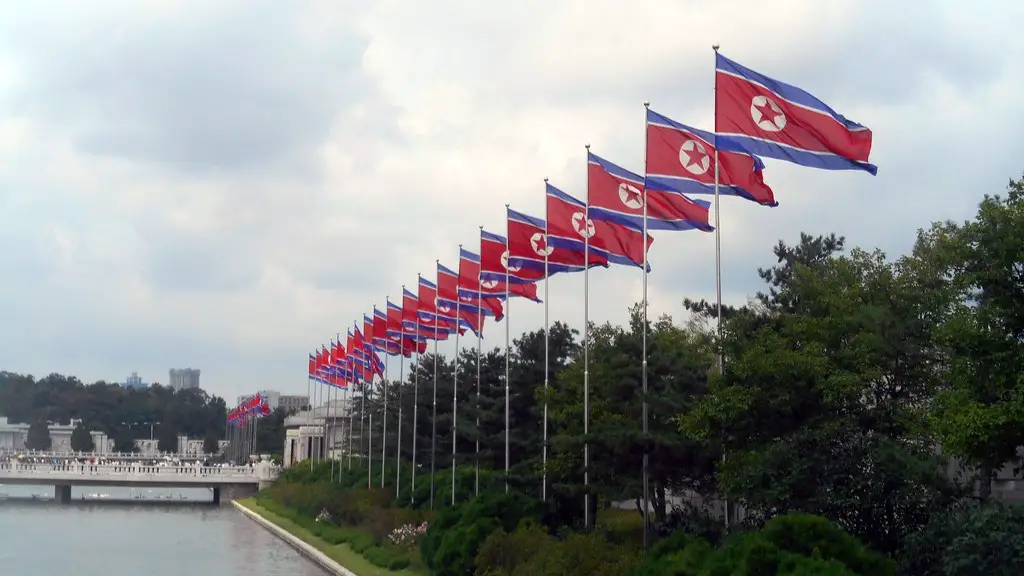Why Is There Famine in North Korea?
North Korea has been famine-stricken for years. Many people live in poverty and struggle to survive because of the country’s systemic economic and political failures, which has led to widespread starvation and malnutrition. This article will explore the reasons why there is famine in North Korea, as well as present possible solutions that could provide relief from this crisis.
The causes of famine in North Korea differ from other countries. It is neither caused by a natural disaster nor the lack of resources. Instead, the famine is caused by decades of mismanagement in the country’s economic and political systems. Over the years, North Korea has implemented policies that have caused a significant decrease in agricultural production and food insecurity.
In addition to mismanagement, there have been reports of North Korea’s government manipulating food distribution to its citizens. It has been reported that certain high-ranking government officials have access to more food than the rest of the population.
The international sanctions that have been placed on North Korea have also had an enormous impact on the country’s economy. These sanctions have restricted North Korea’s trade and access to foreign markets, further exacerbating their already fragile food situation.
With the estimated size of North Korea’s population, the food crisis is even worse. According to the World Food Programme, there is an estimated 25.5 million people in North Korea and it is estimated that 10.1 million are in need of food assistance. This means that about 40% of the population are in danger of facing hunger and/or malnutrition.
Experts have also raised concerns about North Korea’s inadequate health care system and the lack of access to clean water and hygiene. These factors have worsened the food crisis in the country, as malnutrition can lead to dreaded diseases, such as cholera and measles.
In efforts to address the food crisis in North Korea, the international community has donated millions of dollars in food aid. However, some of this aid is not properly distributed, leaving large sections of society deprived of basic nutrition and medical care. In addition, experts have suggested that the international community should focus on providing assistance to improve food security and access to medical care.
In order to combat famine in North Korea, the country’s government must make systemic changes in its economic and political systems. This includes addressing the high levels of corruption and ensuring that policies do not favor certain sections of society. In addition, North Korea must ensure that food and medical aid are properly distributed and access to clean water is available.
Economic Inequality
North Korea’s issue with famine is deeply rooted in inequality. It is reported that some elites have access to a much better quality of life than the rest of the population. This includes access to food and other resources, while the majority of citizens have to cope with scarce resources. This disparity has led to increased poverty and hunger among the general public, who struggle to survive.
The economic structure of North Korea is in many ways still stuck in a pre-industrial system. This means that most of the population is employed in agriculture and are unable to be productive in other sectors. This has resulted in a decrease in economic productivity and has contributed to the decline in agricultural production. As a result, the general public has to deal with a decrease in food supply and access to resources.
The unequal distribution of resources has also been worsened by North Korea’s strict border control policies. The country has heavily restricted both the import and export of food, and has actively blocked aid programs. This has further limited the livelihood of the people.
Agricultural Inefficiency
Agricultural inefficiency is also a major factor in the food crisis in North Korea. The country has emphasized a highly centralized approach to agriculture, which has limited the ability of citizens to produce their own food. This has led to a severe decline in agricultural productivity, and the state has been unable to provide enough food to the population.
In addition, North Korea has implemented a collectivization system, which has centered everything around the state. This has meant that the state has ultimate authority and control over all aspects of agricultural production. This has crippled the private sector and has limited citizens’ ability to be entrepreneurial, which has had dire effects on the agricultural sector.
Furthermore, North Korea has relied heavily on outside aid to feed its population. In recent years, this aid has been reduced and North Korea has had to rely on its own food production to feed the people. Unfortunately, its agricultural production has been heavily affected by the climate change and increased temperatures, resulting in a decrease in crop yield.
Environmental Factors
North Korea’s environment has also played a part in the country’s food crisis. The increase in average temperature and the decrease in rainfall over the past decades have had a severe impact on North Korea’s agricultural production. This has resulted in a decrease in crop yields, further exacerbating food insecurity.
In addition, North Korea is prone to natural disasters that can drastically affect the country’s food supply. It has suffered from severe floods and droughts over the years, which have had a devastating impact on the people’s livelihood. Furthermore, the destruction of farmland due to environmental disasters has also contributed to the food crisis.
Finally, North Korea’s contaminated water supply has had a significant effect on the people’s health, as it has led to a rise in water-borne diseases. Furthermore, there have been reports of the military having access to the country’s best food, water, and resources, while the rest of the population has to cope with the deteriorating environmental conditions.
International Aid
In order to provide relief to the population, international aid has been sent to North Korea in the form of food, medical supplies and resources. However, reports from the World Food Programme suggest that this aid has not been properly distributed to the citizens and that large sections of the population are still in need of assistance.
While it is true that the international community has provided relief to North Korea, much of it is dependent on political negotiations. This can lead to delays in aid delivery and can even result in some of the aid being rejected by the government. This has been a major obstacle for international aid organizations, as they have had to ensure that their aid is properly delivered.
Furthermore, North Korea has a precarious relationship with the international community, and it is often unwilling to accept aid from certain countries. This has resulted in much of the aid being blocked or rejected, further exacerbating the food crisis.
Conclusion
Famine in North Korea has been caused by a multitude of factors, chief among them being systemic economic and political failures. Over the years, North Korea has implemented policies that have caused a decrease in agricultural productivity and a decrease in access to food, as well as a lack of medical resources and access to clean water. In order to provide relief to the population, the international community has donated millions of dollars in aid, but much of it is dependent on political negotiations.
In order to combat famine in North Korea, the country’s government must address the systemic economic and political failures that have caused the crisis. This includes addressing the high levels of corruption and ensuring that policies do not favor some sections of society over others. In addition, North Korea must ensure that food and medical aid are properly distributed and access to clean water is available.





